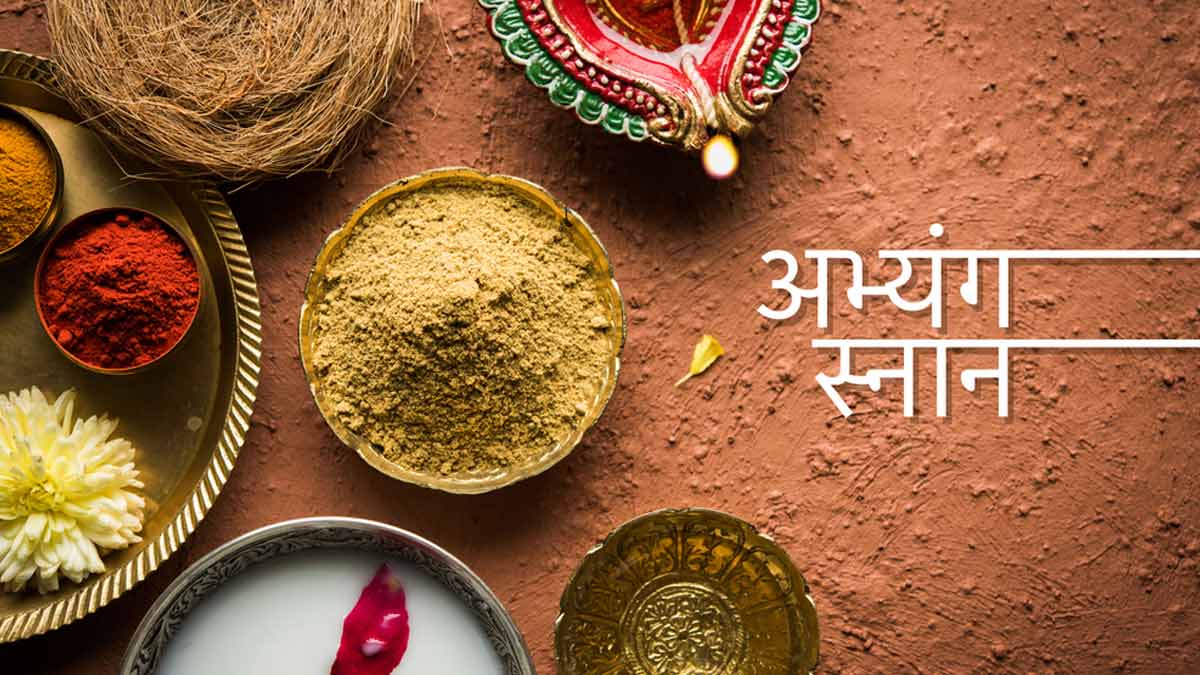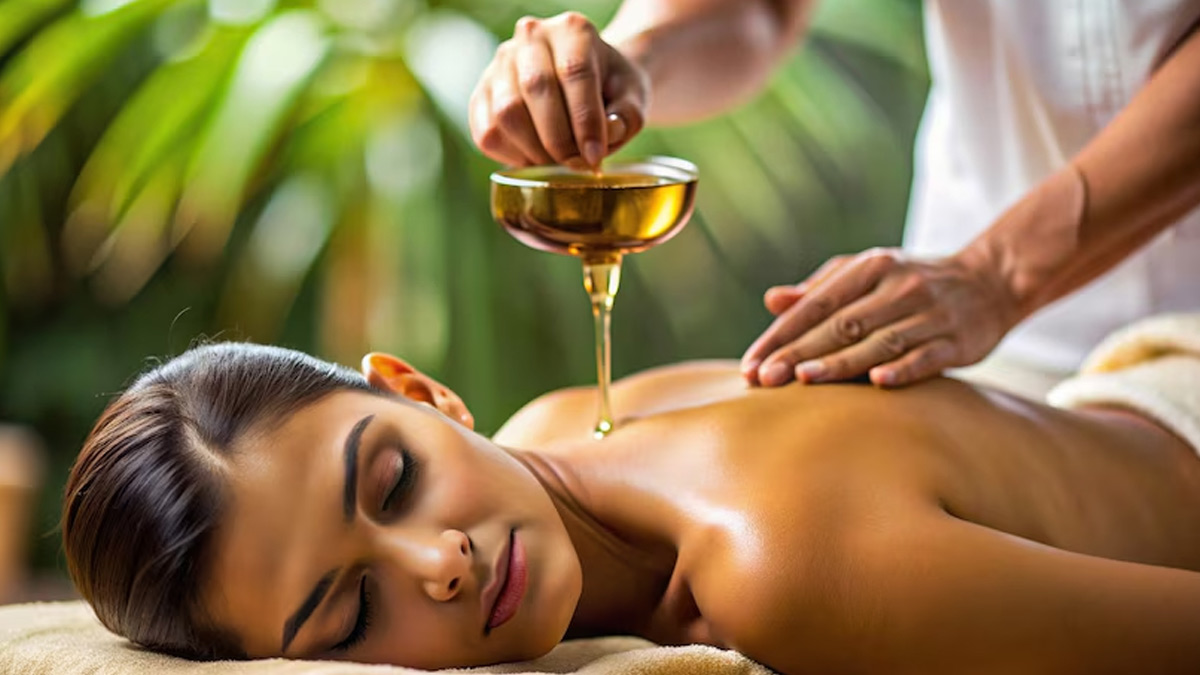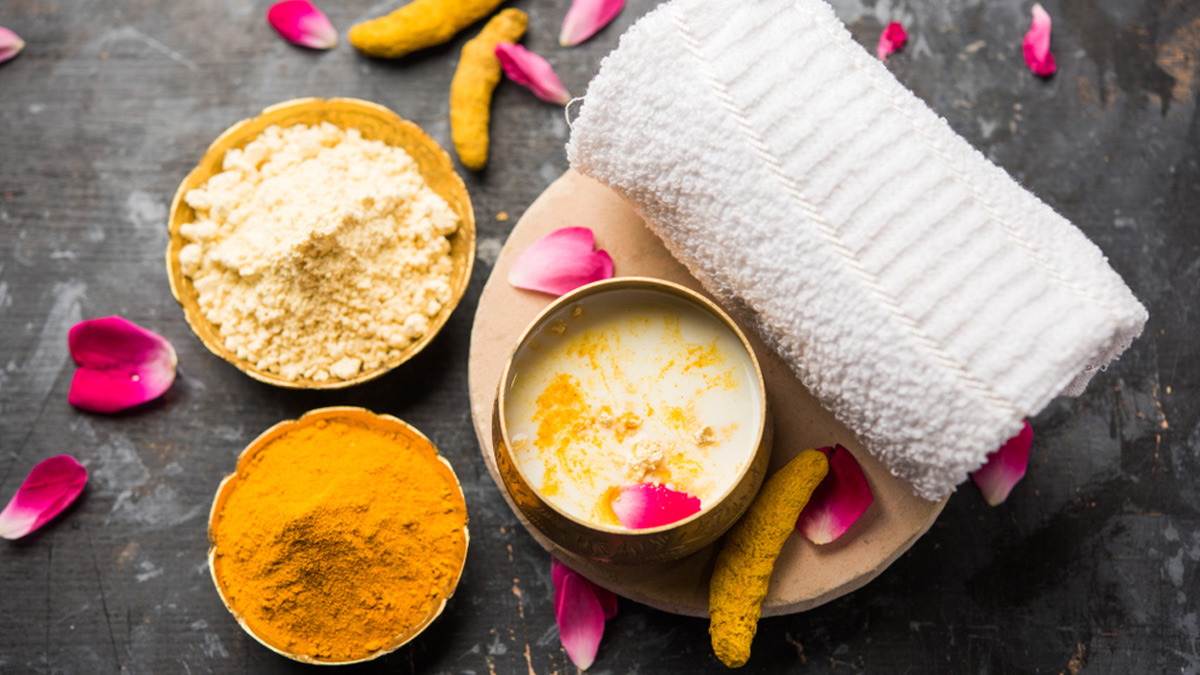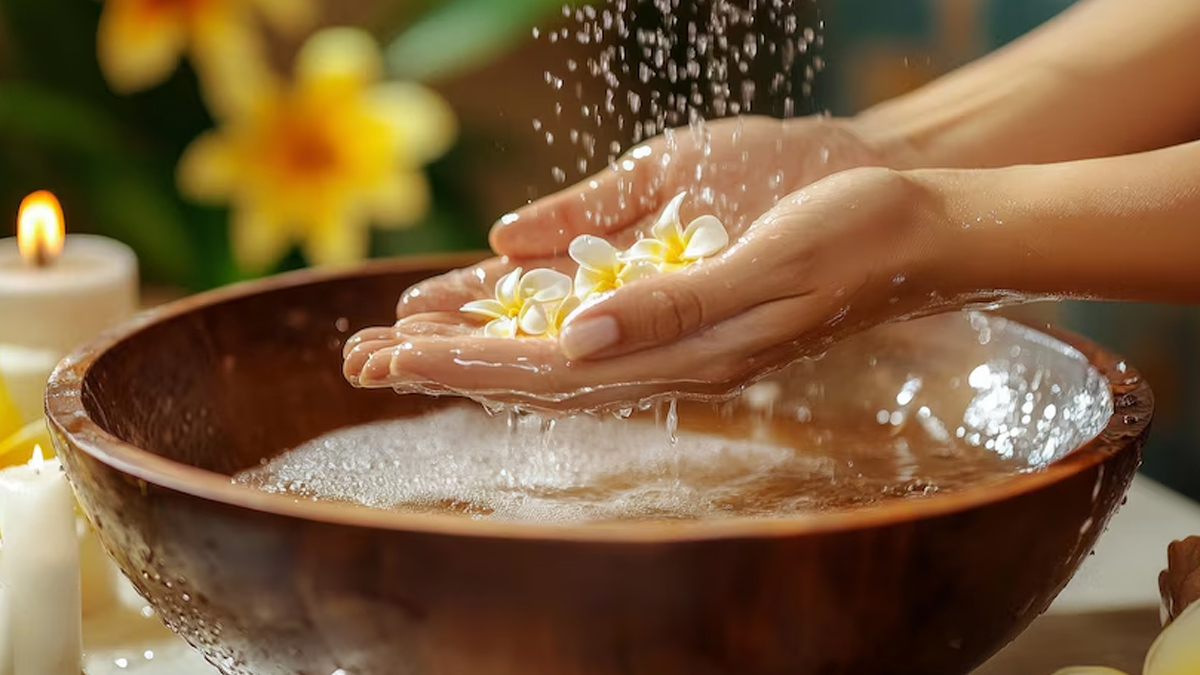
Choti Diwali, also known as Narak Chaturdashi, holds significant cultural and spiritual importance, marking the victory of Lord Krishna over the demon Narakasura. Celebrated the day before Diwali, it emphasises cleansing and rejuvenation, symbolising the purification of the body and soul in preparation for the main festivities. A major part of this celebration is the Abhyanga Ubtan Snan ritual, a holistic bathing ritual that combines Abhyanga (oil massage), Ubtan (herbal paste), and Snan (bathing) to enhance physical and mental well-being.
Table of Content:-
To understand Abhyanga Ubtan Snan Dr Swati Darade, Senior Medical Officer at AYUSH, emphasises the deep-rooted Ayurvedic significance of this ritual, highlighting its effects on skin, health, and inner radiance.
1. Abhyanga - The Oil Massage

Dr Swati Darade explains, “Everyday Abhyanga, or the application of oil, can help delay ageing, relieve body and eye stress, balance Vata dosha, improve sleep, and moisturise the skin to give it a healthy glow. It is not only beneficial on Choti Diwali but as a regular practice for holistic well-being.”
Abhyanga, the first step of the ritual, involves massaging the body with warm oil, often sesame oil, to nourish the skin and deeper tissues. The practice is rooted in the Sanskrit shloka from the Shrangdhara Samhita which emphasises that regular oil application delays ageing, alleviates physical and eye strain, soothes Vata (wind) dosha, and promotes a restful sleep. This process is considered to be the ultimate moisturiser, enhancing the skin’s natural glow and providing deep relaxation by calming the nervous system. In Ayurveda, Vata dosha is associated with dryness and ageing; oil massage acts as a preventive measure against these signs.
Also read: Body Massage: Here Are 7 Oils To Promote Relaxation To Your Mind And Body
2. Ubtan - The Herbal Paste

Following Abhyanga is the application of Ubtan, a traditional herbal paste. Dr Darade highlights its benefits, saying, “Ubtan, made from powders of herbs such as chandan (sandalwood), manjistha, sariva, sesame seeds, turmeric, and rose petals, helps reduce excess moisture and fat (kapha and meda dhatu), strengthens muscles, and acts as a natural cleanser for glowing skin.”
Ubtan is known for its ability to exfoliate dead skin cells, reduce Kapha (excess moisture and mucus) and Meda (fat tissues), and strengthen the muscles. The paste also promotes radiant skin by clearing impurities, making it an excellent remedy for those with oily or acne-prone skin. Ubtan’s ingredients can be adjusted based on skin type, making it a versatile and personalised skincare solution.
3. Snan - The Bathing Process

The final step of this ritual is Snan, or bathing, which cleanses the body and mind, creating a divine sense of freshness. According to Dr Darade, “Daily bathing is essential for removing dirt, sweat, and odour, and enhances the body’s health and vigour. This ritualistic bath on Narak Chaturdashi is especially significant for inviting positivity.”
In Ayurveda, bathing is regarded as essential for both physical cleanliness and spiritual purity. Warm water helps open pores, and when combined with herbal ingredients from the Ubtan, it promotes circulation, detoxifies, and invigorates the senses, preparing individuals for the festival of lights with a renewed aura of positivity.
Also read: What Is Panchakarma, Ayurveda’s Ancient Detox Therapy?
Personalising the Ritual with Herbs
The herbs used in Ubtan can be customised based on skin type and personal needs. Dr Darade recommends a mix of chandan (sandalwood), manjistha, sariva, sesame seeds, turmeric, yastimadhu (licorice root), red lentil powder, and rose petals powder. These herbs can be applied as a fine powder directly on the skin or mixed with milk or sesame oil to create a paste. After 20 minutes, bathing with warm water completes the ritual.
Conclusion
The Abhyanga Ubtan Snan ritual is a symbolic purification process that prepares the body and soul for Choti Diwali. As Dr Swati Darade summarises, “This ritual not only enhances physical beauty but also rejuvenates the mind and body, aligning us with the festival’s spirit of light, purity, and prosperity.” Embracing this ancient Ayurvedic tradition on Narak Chaturdashi brings wellness, vitality, and a glowing complexion, connecting us with time-honoured wisdom for a healthy and auspicious start to the Diwali celebrations.
Also watch this video
How we keep this article up to date:
We work with experts and keep a close eye on the latest in health and wellness. Whenever there is a new research or helpful information, we update our articles with accurate and useful advice.
Current Version